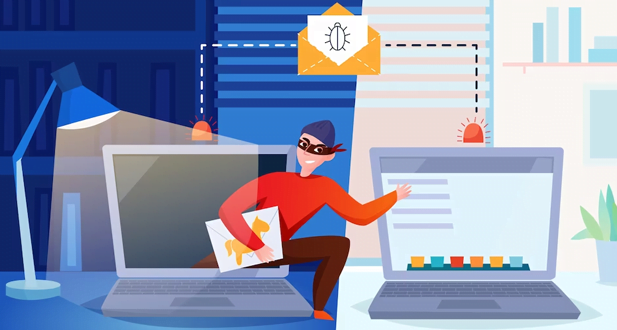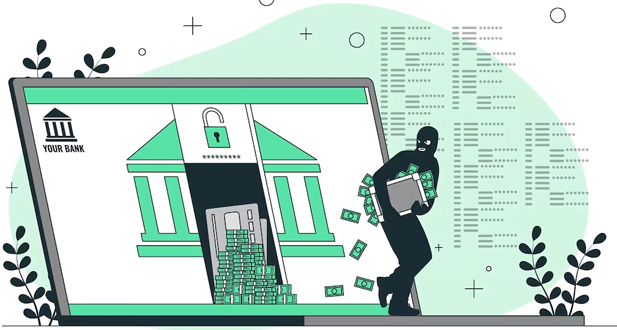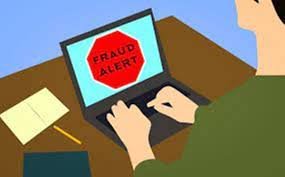Lottery Fraud
Any action taken to cheat a lottery game is considered lottery fraud. A fraudster tries to use deceptive tactics to earn a big prize. The intention is to defraud the lottery company of funds or, in the instance of a stolen lottery ticket, to defraud a person of their rightfully obtained prize.
There are a number of typical methods employed, such as presenting a legitimate, stolen ticket to falsely claim a win or using a fake or changed lottery ticket to claim a prize. There are other instances of insider fraud, in which lottery personnel or agents took use of their affiliation with the game to falsely claim winnings for themselves by, for example, interfering with the draw itself. Players can show their lottery tickets in many different nations, Another type of lottery fraud, also referred to as a lottery scam, involves telling a person they have won a prize via email, letter, or phone call. In order to process the fictitious gains, the victim is told to pay a charge. This type is a popular email scam and a type of advance-fee fraud.
Messages from KBC offering a five lakh rupee lottery prize are false.
Another identical message that offers WhatsApp users a chance to win a $25,000,000 lottery prize is also being extensively distributed. The message insists on connecting exclusively through WhatsApp in order to receive the prize money.
WhatsApp, however, has not made any such lottery announcement, hence the viral is nothing more than a false hoax. In December 2021, the Delhi Police’s Cyber Crime Unit classified the communication as fraudulent since scammers had tricked the subscribers into paying a deposit before they could claim the lottery prize.
Once the victim deposits the money, they begin to demand additional money under various justifications. The scammers insist on using WhatsApp as their only form of communication. They coerce the victim into making deposits into a number of different bank accounts, and the scam continues for weeks or even months as long as they can manage to coerce the victim into making deposits. To keep the victim interested and involved, they eventually start informing the victim that the lottery money has been increased further to Rs. 45 lakhs, then to Rs. 75 lakhs, and so on. Finally, they cease phoning the victim and delete the WhatsApp numbers that were previously used when the victim starts demanding on collecting the money or refuses to pay more
A similar scam, in which hackers attempt to hijack the user’s WhatsApp account and extort money from them, has also been discovered by Delhi police.
On social media, there is a rumor going around that says the Kaun Banega Crorepati (KBC) management is holding a lottery and offering a cash prize of 25,00,000 rupees to the winner.
A similar audio call recording of a man introducing himself as a customer office representative from KBC congratulating a person for winning the 25 lakh rupee lottery from KBC was shared with our WhatsApp Tipline (+91 92470 52470). Different contact numbers are shared in each of these messages for getting the prize money. Let’s check the post’s assertion.
When we looked for information about these audio recordings being distributed under the KBC lottery, we came across a tweet from Jammu and Kashmir police officer Tahir Ashraf.
Similar audio of a woman congratulating someone on winning the KBC lottery jackpot of 25,00,000 rupees was provided by Tahir Ashraf. People were warned by Tahir Ashraf that the call was a scam that was being made under the guise of the KBC lottery. Tahir Ashraf issued a warning to the public urging them not to fall for such con artists’ calls and lose money.
When we looked into additional details about these KBC lottery messages that were going around on social media, we discovered that the Delhi Police website had a specific page set up to explain the KBC Lottery Frauds. Any mail claiming you have won a reward or the lottery is almost certainly a scam, according to a statement on this page on the Delhi Police website.
A Mumbai housewife was recently tricked into paying 3.85 lakh under the guise of winning the KBC lottery. Online, where such KBC frauds have been reported for several years, there are several complaints of this nature.
Regarding these KBC lottery messages spreading on social media, the PIB Fact-Check has also provided some clarification. People were warned not to divulge their personal information in response to PIB’s clarification that messages spreading under the KBC lottery’s name are false.
A number of news websites across the nation have posted articles warning the public about these bogus mailings spreading under the KBC lottery’s name. These are seen here and here. Prior to this, FACTLY released a fact-check piece refuting a similar message’s claim that the KBC and Jio departments had organized a raffle for 25 lakh rupees.
Online Lottery Scams
An online lottery scam is when someone takes advantage of the lottery system to try to get money or private information out of you. They may try to get access to your bank accounts using that data, which includes personal and financial information, or they may ask you to transfer them the money directly.
Scammers target thousands of clients with their emails and messages, and they can make money if they can trick only a few of them. They try to convince you that you have won a considerable jackpot and all you need to do to claim it is pay a tiny fee. However, there isn’t a jackpot involved, and getting your money back is difficult.
You should therefore constantly be on the lookout for prospective lottery opportunities and scams. We will talk about how you can protect yourself in this article.
Is Online Lottery Gaming Safe?
Let’s be clear about one thing: playing the lotto online is completely safe. Online lottery is played by millions of individuals worldwide. You are welcome to join them and buy lottery tickets right now.
The main thing to keep in mind is to only play in legitimate lotteries and suppliers. Stick to the well-known lottery games when choosing which ones to play. These might include both national lotteries like Mega Sena and Lotto 6/49 as well as international lotteries like Euro jackpot.
Finding an online lottery website is the simplest approach to play various lotteries. You should always stick with trustworthy platforms. It should be completely safe to play the online lottery as long as you follow those instructions.
Lottery issues of note
Ontario Lottery Scandal
Here is another Canadian tale involving the Ontario Lottery and lotto merchants. In their establishment, the Chung family offered lottery tickets. When a winning ticket was presented, however, they would claim there was no win and keep the ticket. They would claim it and take the money after some time had gone.
Years went by during which this occurred, but the largest issue arose in 2003 after the Super 7 grand prize was given out. Chung used the same method, earning $12.5 million as the incentive. The officials thought it odd that they had to wait two months to collect the ticket, but they still got the money.
However, the Ontario Police didn’t start investigating the lottery sellers who had claimed an unusually high quantity of tickets until years later. The case received media coverage, and the scam was made public.
Finding the actual jackpot winners from 2003 took until 2011. The correct thing to do was for the Ontario Lottery to pay them the full amount of the reward plus interest. Regarding the Chungs, they were accused of fraud.
Chinese Lottery Fraud
In China, there was a significant lottery fraud in 2005. Zhao Liqun discovered a weakness in the lottery system while working as an agent. A few minutes after the winning numbers were drawn, he could print a ticket with those numbers on it. To avoid suspicion, Liqun printed a lot of these tickets and instructed his family to use them.
Despite this, the fraud was discovered, and Liqun was taken into custody. He allegedly made roughly $3.8 million through this fraud, but he is currently serving a life sentence in prison.
Tips to Avoid an Online Lottery Scam
-
When you didn’t purchase a ticket, you can’t win the lottery.
A well-known joke tells of a man who had prayed for years to win the lottery jackpot. He prayed nightly for years until receiving a message from God saying, “You need to buy a ticket first!” If you didn’t buy a ticket, you can’t hope to win anything. That ought to be the initial indication that someone is attempting to con you. You may be familiar with the lottery, such as US Powerball. You might even occasionally play it, but you are aware that you failed to purchase tickets for the most recent draw. The likelihood is that you are a fraud victim rather than the winner if you don’t have any current tickets.
-
Check the lottery’s regulations.
Typically, if it’s a hoax, you’ll get a letter, email, or text message telling you that you won. However, do you believe that is how lotteries notify their winners?
First off, when purchasing a lottery ticket, you do not leave your email address or mobile phone number. Typically, you have a set amount of time from the drawing date to redeem your prize. You might need to go to the lottery offices in person to claim the prize if it is a sizable sum.
All of this is detailed in the lottery’s regulations, which you can check. Look for the terms and conditions on their official website. That will provide more information on the procedure for making the claim rewards, which should confirm that the e-mail you received from that random address is a scam
-
When claiming the prize, they demand upfront payments.
That is never how lotteries operate. Don’t pay for anything if someone asks you to receive something in exchange. Many con artists will send you an email asking for $100 in exchange for a $10,000 winning lottery ticket. But as soon as you send the money, communication with them ends.
This tactic has been used by con artists for years. Your distant cousin may have left you money in a will, but it was being kept captive in a foreign bank. You may have read about some well-known Nigerian schemes using these funds. The lottery follows a similar theory. A trustworthy online lottery operator won’t ever demand payment before paying out a prize.
-
The Best Way to Verify a Fake Check
Checks are still used as a form of payment, despite their declining popularity. A prize check that you purportedly won in a lottery or sweepstakes may arrive in the mail. A little percentage of the prize money can be rewired back to them as part of the cheque.
Since it takes weeks to identify a fake check, the bank may even give you the money once you get there. Due to the false check you used, you do not receive your money back and the bank does not make up the losses.
Here are various methods for determining whether the check is fake
- Never use the phone number supplied in the email since it could be a part of the scam; instead, call the bank. Instead, research the phone number of the bank that is said to have issued the check on its official website.
- Visit the bank; if there is a branch there that is close by, you can also go there.
- Visit the lottery website to check the regulations and determine whether sending prizes by check is permitted.
- Examine every detail on the check since, more often than not, scammers will make mistakes or leave out certain information from a legitimate check.
-
Always Use Trustworthy Online Lottery Sites
The easiest approach to stay clear of any fraud is to buy lottery tickets online from reliable sellers. Numerous top-notch websites, like LottoAgent, Lotto Smile, and Win Trillions, are available for your selection. You can purchase tickets for numerous national and international lotteries from these operators at a single location.
As an alternative, you can purchase tickets on the group’s official website. Another technique to guarantee that nobody would steal your treasure is to do that.
Frequently Asked Questions
To the Do Not Call Registry, report any robocalls and unwanted telemarketing calls. Inform the Federal Communications Commission of caller ID spoofing.
Contact the FTC online or by phone at 1-877-382-4357 to report the scam (9:00 AM – 8:00 PM, ET). Most scams, including these well-known ones, are covered by the FTC’s complaint policy: Making calls
Your phone will ring once and then stop as part of a phone scam in an effort to get you to call the number again. If you do dial the number back, it connects to an expensive overseas line, so you will be charged for the call and the con artist will profit.
Financial Institutions – Get in touch with the fraud department of your bank, the company that issues your credit cards, and any other locations where you have an account. Report the incident to retailers and other businesses where the identity thief sought jobs or started credit accounts.
When they call you, can hackers access your phone? No, not in that way. You can get a call from a hacker pretending to be from a government agency, giving them access to your personal data. They might begin compromising your online accounts once they know that.




